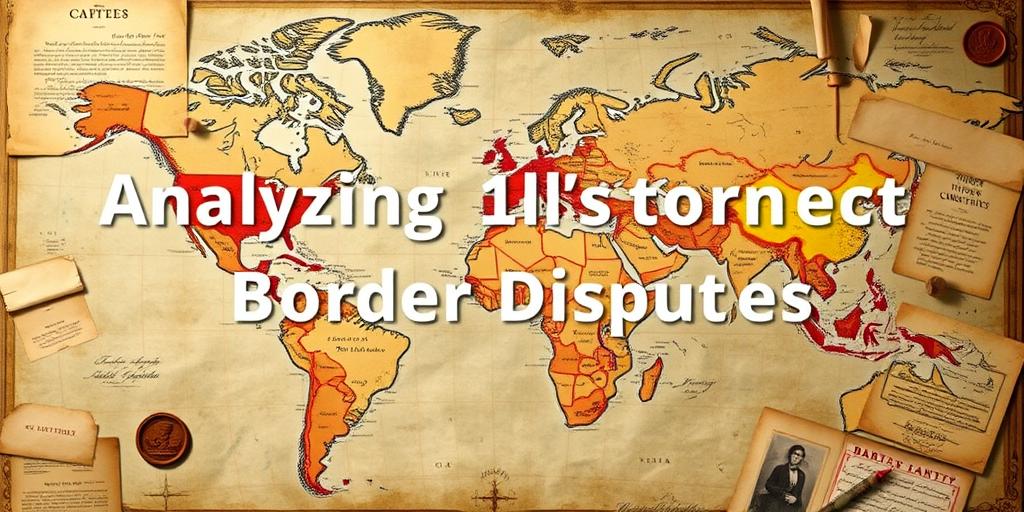Understanding border disputes requires a deep dive into the historical context that shapes them. These conflicts rarely arise in a vacuum; they are often the product of long-standing grievances, colonial legacies, and shifting geopolitical landscapes. By examining the historical factors that contribute to border disputes, we can gain valuable insights into the complexities of these conflicts and work towards more peaceful resolutions.
Colonial Legacies: Many contemporary border disputes have their roots in the arbitrary borders drawn by colonial powers. The Scramble for Africa, for example, resulted in the division of the continent among European powers with little regard for existing ethnic or linguistic boundaries. These artificial borders often led to conflict between different groups who were forced to coexist within the same state.
Treaties and Agreements: Treaties and agreements, while intended to establish clear boundaries, can also be a source of conflict. Ambiguous language, outdated maps, and disputes over interpretation can all lead to disagreements about where the border should be located. The Treaty of Tordesillas (1494), which divided the New World between Spain and Portugal, is one such example.
Nationalism and Identity: The rise of nationalism in the 19th and 20th centuries played a significant role in shaping border disputes. As nation-states emerged, they often sought to expand their territory to include areas inhabited by people who shared their language, culture, or religion. This irredentist impulse has fueled numerous border conflicts throughout history.
Resource Scarcity: In some cases, border disputes are driven by competition over scarce resources such as water, oil, or minerals. The allocation of water from the Jordan River, for example, has been a long-standing source of tension between Israel and its neighbors.
Case Studies:
The Kashmir Conflict: The dispute between India and Pakistan over Kashmir is rooted in the partition of India in 1947. The region's Hindu ruler opted to join India, despite its majority-Muslim population. This led to the First Kashmir War and a long-standing territorial dispute.
The South China Sea: Several countries, including China, Vietnam, the Philippines, and Malaysia, have overlapping claims to islands and maritime areas in the South China Sea. These claims are based on historical maps, interpretations of international law, and control over valuable resources.
Conclusion: Analyzing the historical context of border disputes is essential for understanding the underlying causes of these conflicts and for developing effective strategies for conflict resolution. By recognizing the complex interplay of historical, political, and economic factors, we can work towards building a more peaceful and stable world.









